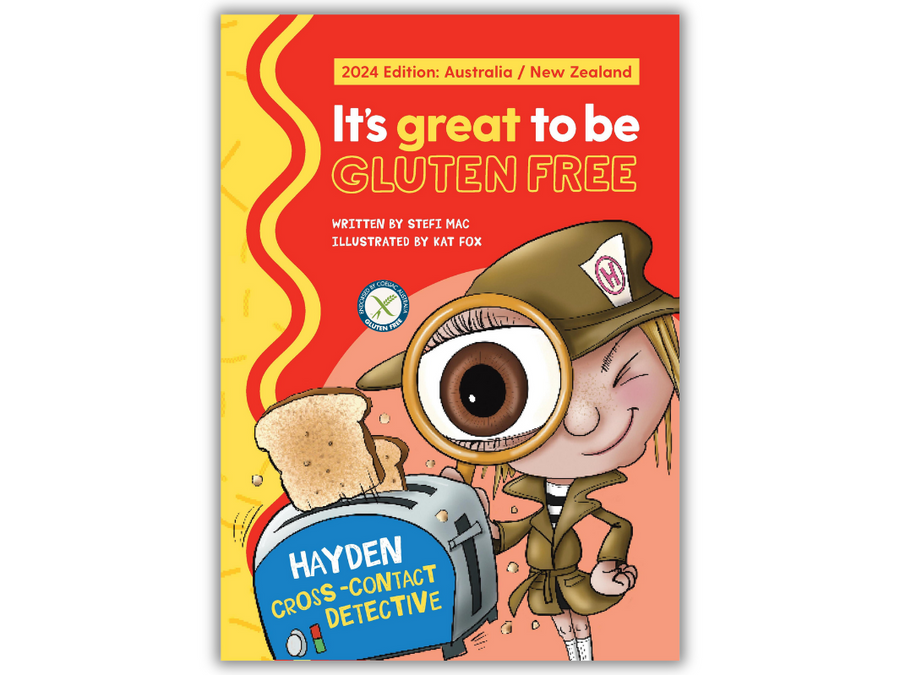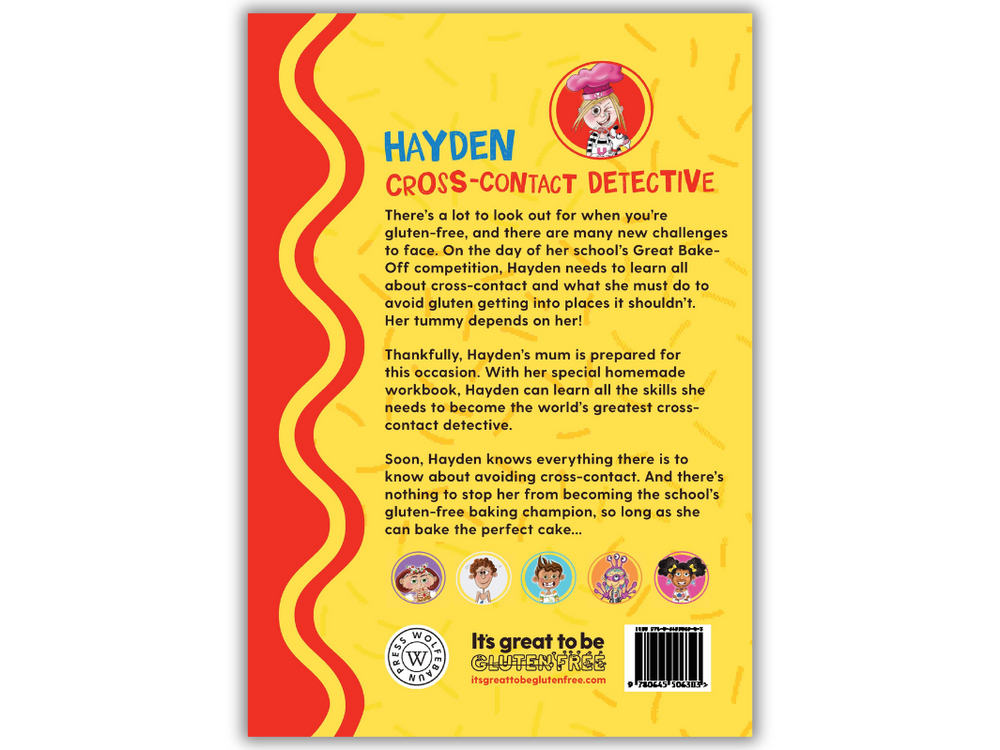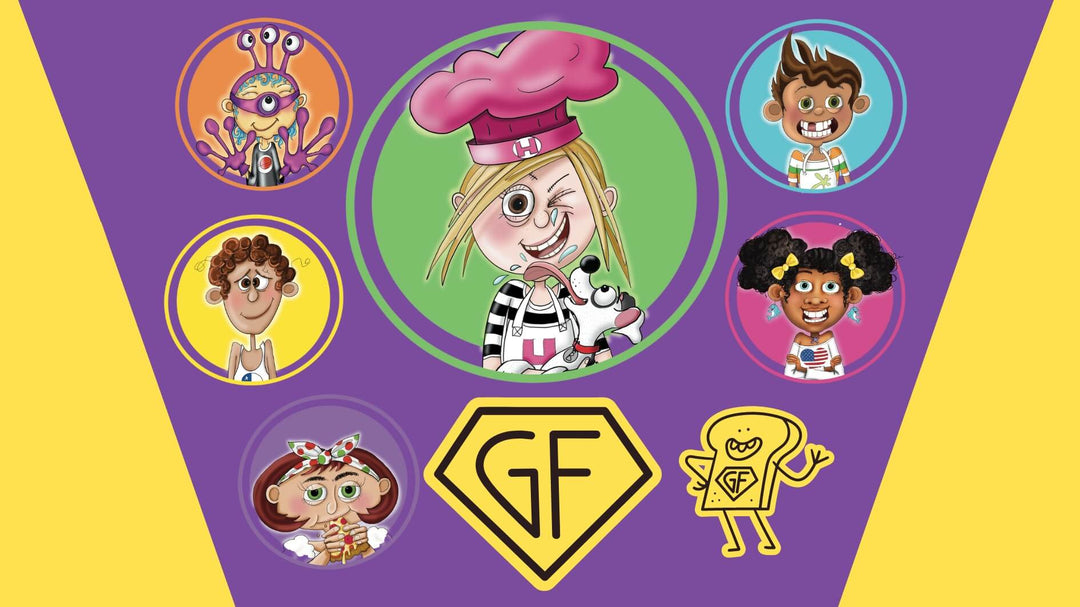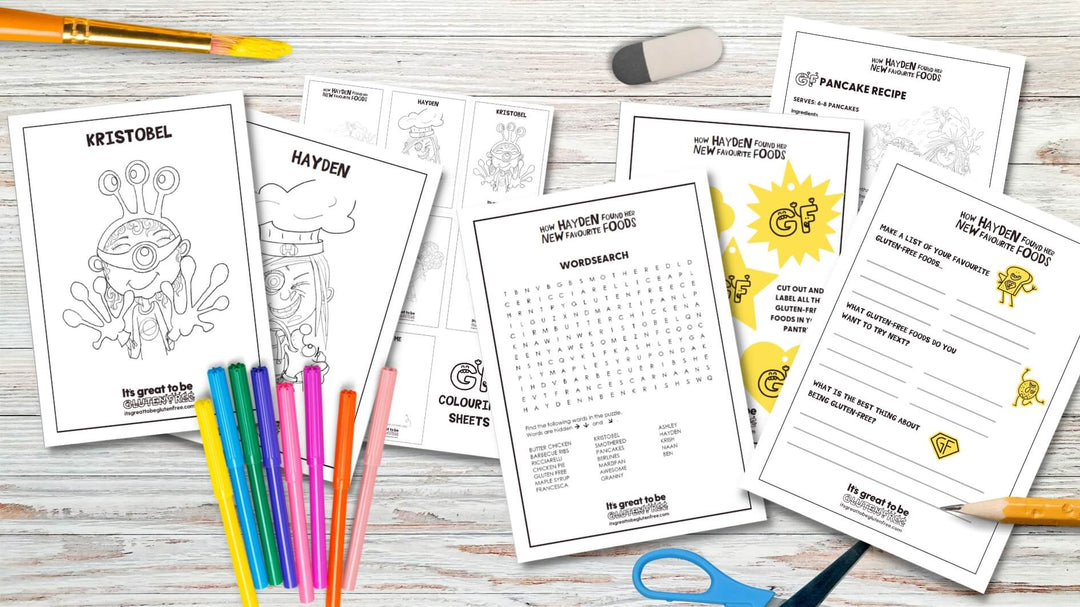"No, Thanks": Empowering Gluten-Free Kids to Confidently Assert Their Dietary Needs

Two little words can make a big difference in the life of a gluten-free child: "No, thanks."
When children are uncertain about the gluten-free status of a food, developing the skills to seek answers or say "no, thanks", can help them to assert their dietary needs and avoid gluten exposure. However, for many gluten-free children, navigating their dietary needs in a social situation can be anxiety-inducing, especially when not wanting to offend a well-intentioned loved one or authority figure. In this article, we'll explore some strategies that parents and caregivers can use to help their children feel confident turning down unsafe foods.
Gluten-Free Uncertainty
This often includes concern or confusion over a food's ingredient list, 'may contain' status or preparation practices. It can feel awkward turning down that gluten-free birthday cake a loved one has thoughtfully prepared in their home as a surprise or declining that platter of foods somebody has brought you back from the busy buffet. For kids, it can be saying no to unmarked lollies in a party bag, turning down a food-based reward offered by a teacher or worrying about a cooking activity in class.
Parents and Caregivers Play an Important Role
Parents and caregivers play a crucial role in supporting their child cope with dietary challenges. With the right supports in place, a child can take charge of their dietary needs and succeed on a gluten-free diet whilst building a healthy relationship with food.
How Caregivers Can Support Children to Assert Their Dietary Needs
Here are our top four strategies to help caregivers support their children to assert their dietary needs. Not only can these tools help a child develop awareness, knowledge and skills to cope with gluten-free challenges, but they can also help reduce anxiety and build exposure and resilience.
1. Educate
Teach your child about their condition and the importance of following a gluten-free diet for their health. Explain what gluten is, how it affects their body. Use simple language and visual aids to help them understand and remember.
When a child is ready, teach them how to read labels and manage cross-contact. Role-play asking questions or make a game out of question/solution-seeking activities in the home. Let them practice reading labels with you and openly discuss and model cross-contact practices in the kitchen.
2. Exposure is Key
Work with your child's Allied Health supports to develop a plan to help them build exposure skills. This may include exposing them to situations that may trigger anxiety or uncertainty, such as social events or eating at restaurants. Work with your child's supports to develop coping strategies, such as deep breathing or visualisation, to manage their feelings and respond assertively. Encourage them to practice asking questions, self-assessing foods and declining uncertain foods in a confident and polite manner.
3. Open Communication
Keep communication open with your child. Encourage them to express their concerns, questions, and feelings about their diet and how it affects their daily life. Listen to them actively, validate their experiences, and offer support and guidance as needed. Ask them how they feel after asserting their dietary needs and celebrate their successes.
4. Celebrate Healthy Choices
Praise and reward your child's efforts to follow a gluten-free diet, try new foods, and speak up for their needs. Show them that their health and well-being matter, and that they can be proud of their progress and resilience. Celebrate healthy choices by cooking together, trying new gluten-free recipes, or finding safe gluten-free options at a local restaurant.
By following these strategies, parents and caregivers can help their children confidently assert their dietary needs and thrive in a gluten-free lifestyle. Asking questions, developing the skills to self-assess and saying "no, thanks" to unsafe foods can be an empowering and positive choice that helps children stay healthy and happy.
Here at It's Great to Be Gluten-Free we're passionate about supporting gluten-free kids and families to make healthy choices and enjoy foods without fear or shame. That's why we developed a comprehensive book series with age-appropriate tools and strategies that will help your child succeed. Our books cover various topics such as navigating a diagnosis, adapting to dietary change, learning to read food labels, managing cross-contact and overcoming the social challenges of being gluten-free. Our latest book release, How Hayden Found Her New Favourite Foods, helps kids turn dietary challenges into tasty triumphs. Learn more about it here.










Thanks for sharing this article – I’m going to forward it to my daughter and grandkids.
Leave a comment